
Politics
21:39, 08-Mar-2018
China's world view in this political season
By Sean Callebs
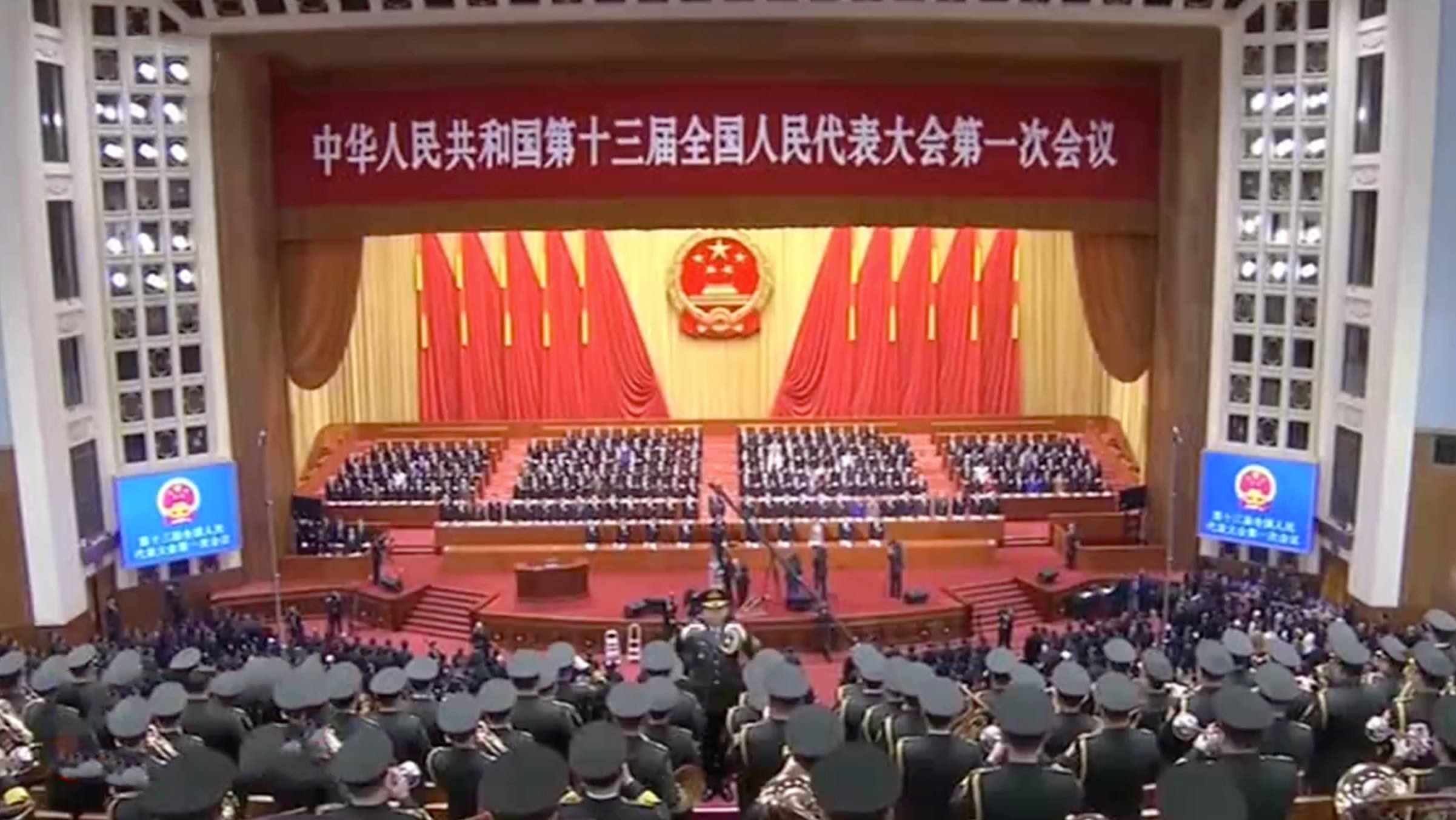
We know from the work report detailed by Premier Li Keqiang that China has its sights set on controlling debt and financial risk, while growing a world-class business environment at home.
During this political season, NPC delegates and CPPCC members are in work groups, darting from hotel to hotel to discuss the course of the country’s future.
We ran over to the plush Beijing Hotel, not far from the Great Hall of the People and tracked down successful investor and entrepreneur Thomas Cheung.
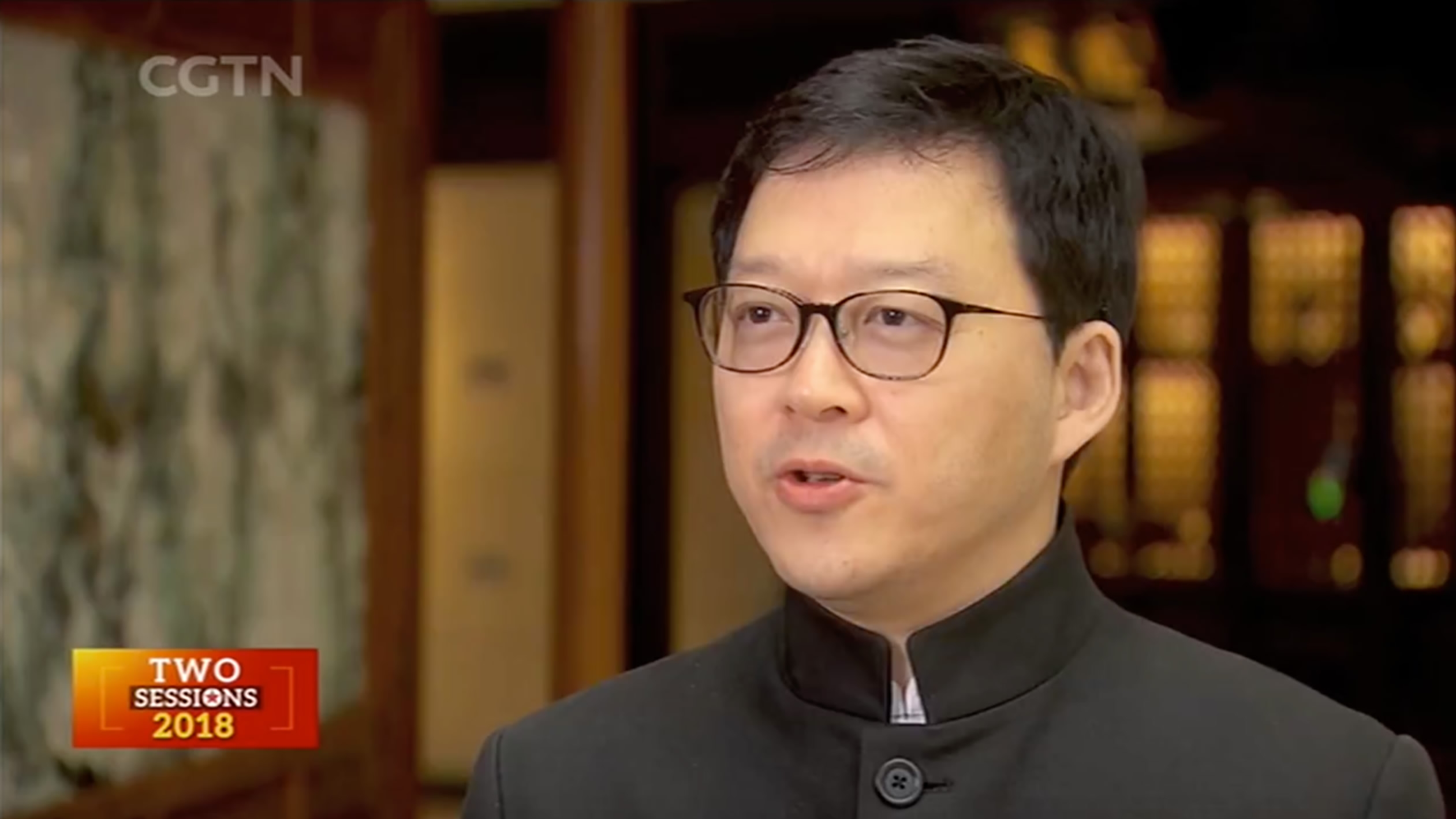
Thomas Cheung, NPC delegate. /CGTN Photo
Thomas Cheung, NPC delegate. /CGTN Photo
This is Cheung's first time serving as an NPC delegate, and he is enjoying the experience.
“We are in the process of transforming ourselves, not just into a manufacturing base for others-but actually we are creating our own technology,” Cheung told me.
This is important, he says, as China jockeys for a position at the global table-a position many government leaders believe the second largest economy has earned.
There is more, according to the Hong Kong resident.
“Also, our own branding, and our own design, and our own concept,” Cheung said. “Not just imitations, but we are also trying to create something new.”
That is going to be key as China deals with other nations on issues such as development, trade, environment, and even security.
China is in many ways a world of its own, according to one expert on poverty alleviation that I spoke with.
Over the last 40 years, China has lifted hundreds of millions out of poverty, and focusing on the remaining three to four percent living below poverty wages in the nation. The effort is called “going the last mile.”
China needs raw materials to keep flowing in to keeps its economy from slowing further.
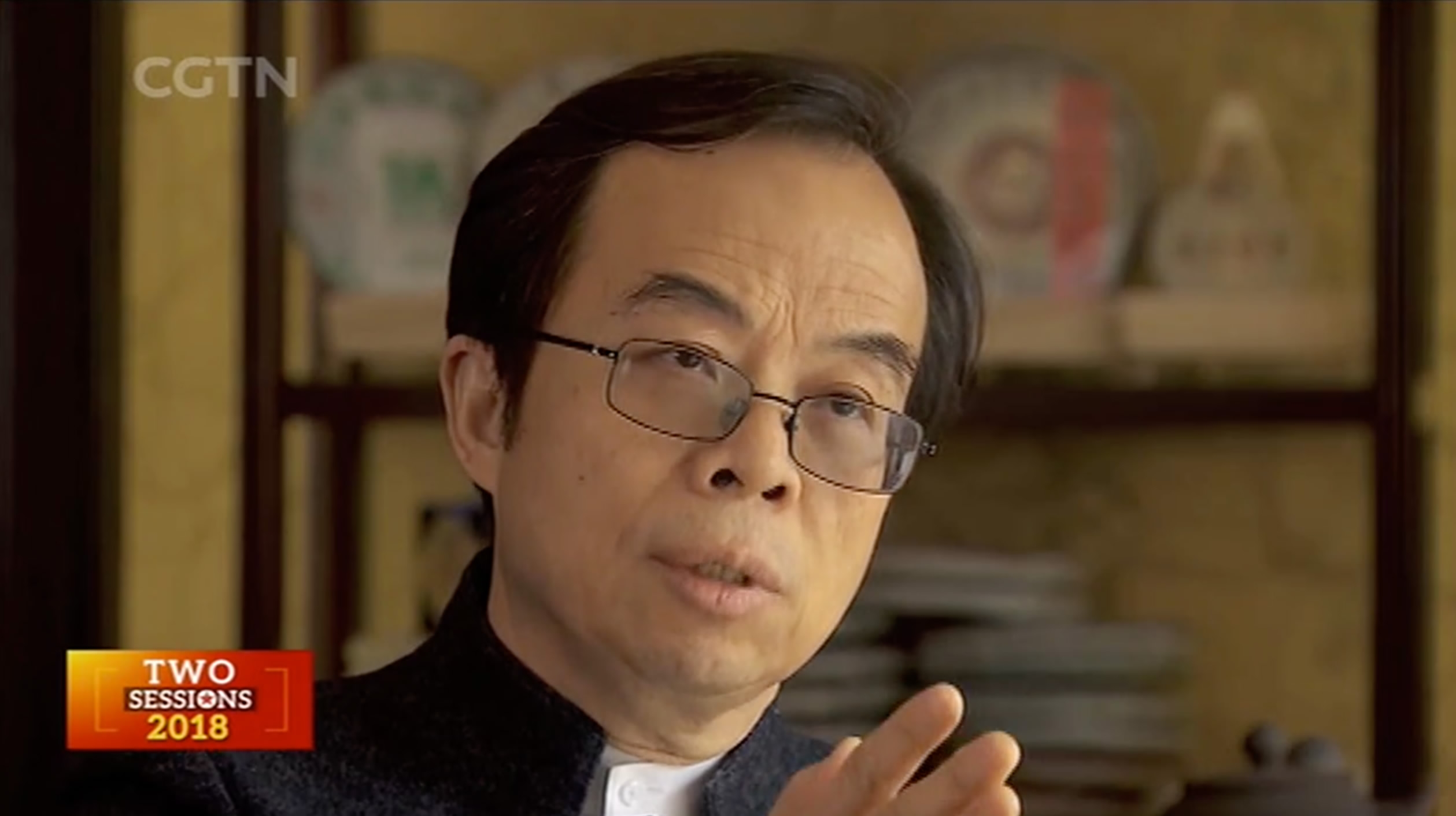
Huang Ping, a CPPCC member. /CGTN Photo
Huang Ping, a CPPCC member. /CGTN Photo
Academic Huang Ping, a first time CPPCC member, says the ambitious Belt and Road Initiative is going to be key to fostering international relations.
And, while some in the West have raised concerns over China’s growing influence, Huang says now is not the time for Beijing to take its foot off the accelerator.
“This is particularly true since Xi Jinping. This is not the time for China to wait and to see, you have to have your own grand strategy,” Huang says.
Anyone who has even seen pictures of the choking air pollution that often haunts Beijing can understand China’s commitment to corralling pollution-and in the process emerging as a world leader in the effort to battle the build-up of harmful greenhouse gases.
The country has a long way to go, but with the US and President Donald Trump vowing to pull out of the critically important Paris Climate Accord, it makes China’s global position much more important.
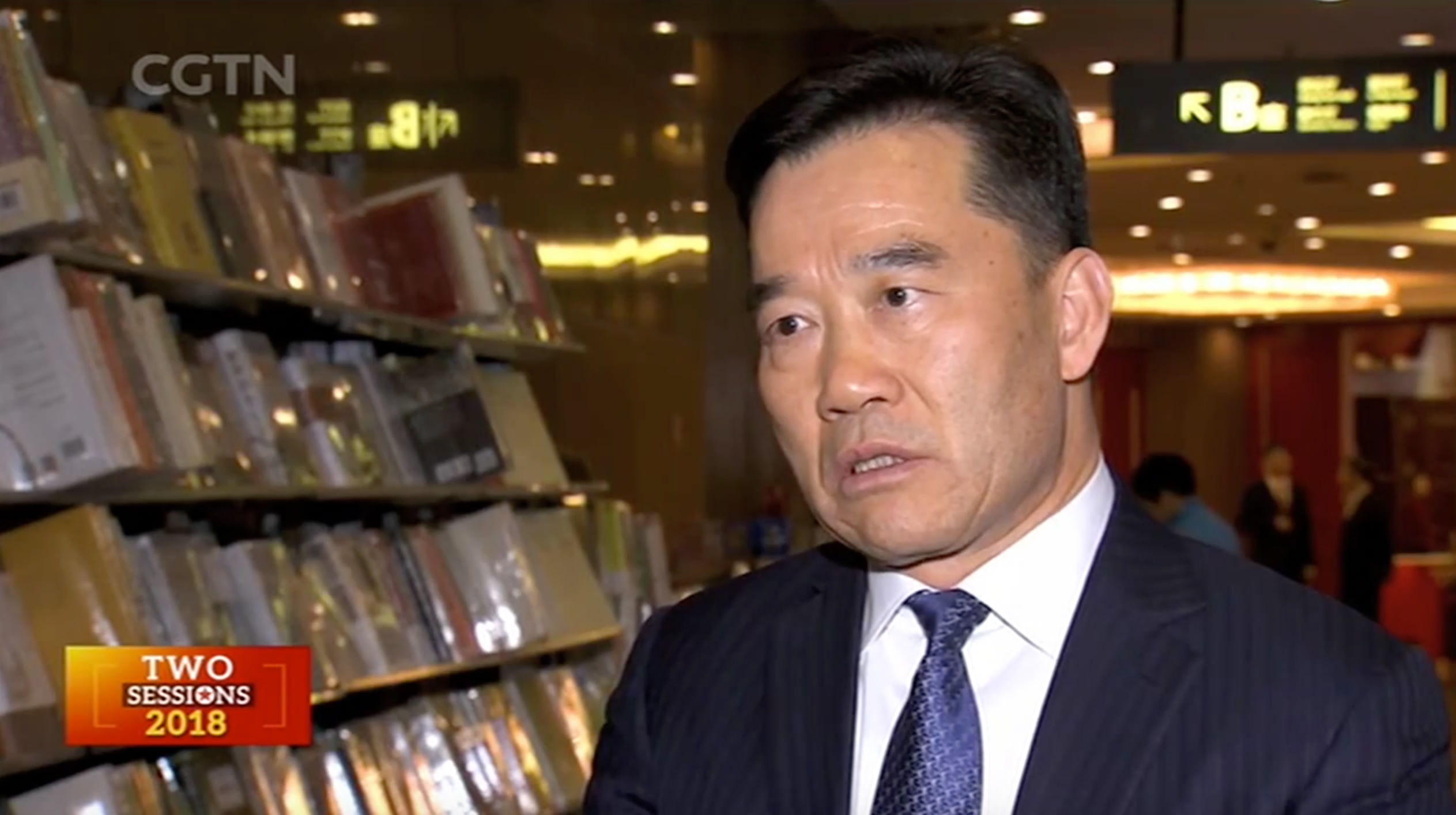
Zhang Chuanwei, NPC Deputy, and the Chairman and CEO of Ming Yang Smart Energy Group. /CGTN Photo
Zhang Chuanwei, NPC Deputy, and the Chairman and CEO of Ming Yang Smart Energy Group. /CGTN Photo
Zhang Chuanwei, an NPC deputy and chairman and CEO of Ming Yang Smart Energy Group, has seen China’s rise as a leader in renewable energy.
“I would like to emphasize that we spent five years to grow from 'left behind' to 'neck to neck' to 'world leader' when it comes to the development of new energy equipment and technologies,” Zhang said.
Meanwhile, China is working on enhancing its international competitiveness-as well as modernizing its farms, a feat for a nation that has to feed 1.4 billion people.
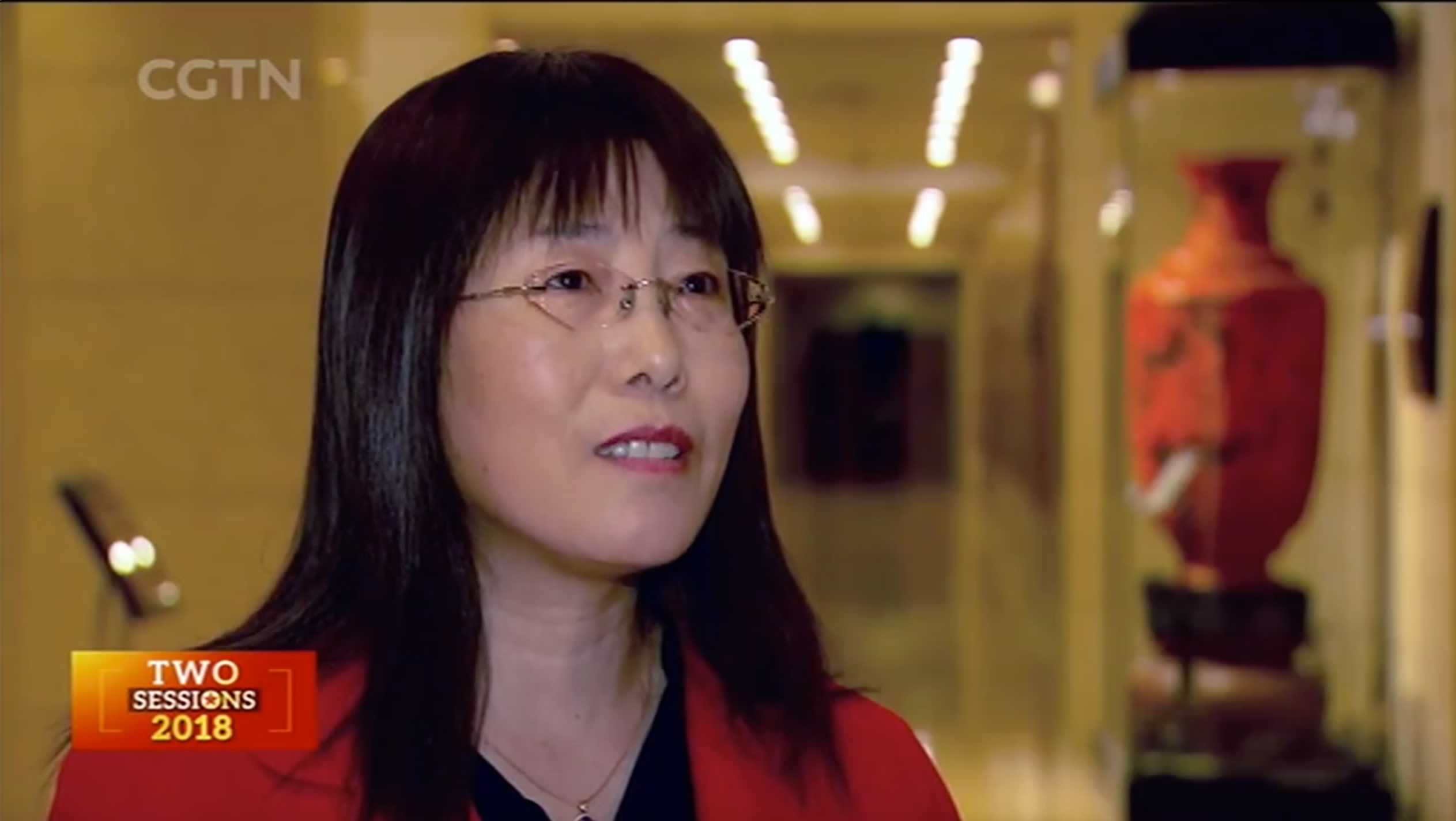
Wang Zuoying is a researcher at Dadong Academy of Agricultural Sciences. /CGTN Photo
Wang Zuoying is a researcher at Dadong Academy of Agricultural Sciences. /CGTN Photo
We tracked down NPC deputy Wang Zuoying, literally running from work session to work session.
She is a researcher at Dadong Academy of Agricultural Sciences in China’s extreme northeastern province.
Wang told us, “From a global perspective, the competition is relatively fierce. Many foreign countries are advanced in research and development. We would love to learn from each other with the rest of the world.”
One cloud hanging over the Two Sessions is Trump’s threat to hit China and other nations with punishing tariffs on steel and aluminum.
It could trigger an international trade war.
“To me, I think a trade war for sure is not something that benefits the US, China, or the rest of the world,” Cheung said. “And, instead we should try to come up with something that is workable for everyone.”

SITEMAP
Copyright © 2018 CGTN. Beijing ICP prepared NO.16065310-3
Copyright © 2018 CGTN. Beijing ICP prepared NO.16065310-3